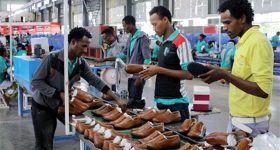Many governments in Africa are offering excellent incentives and tax exemptions in an effort to attract foreign investors in the agricaultural sector:
Sudan
The new policy explained by Dr Samson Kwaje, Minister of Agriculture and Forestry of the Government of Southern Sudan, involves leasing (for 8-32 years) a minimum 60,000 acres of land to foreign farmers at a lease fee of amount 25 US cents/year/acre. There is no upper limit. There would be no taxes or duties on inputs and no profit tax for at least four years.
Senegal

The land lease rate in India’s state of Punjab is a minimum of $760 per acre. In contrast, in most African nations, the land lease rate works out to a mere $13.30 per acre
In Senegal, land could be acquired under two different procedures namely (i) allocation of land for agricultural use and (ii) regularisation through lease (long lease). Acquisition of land through procedure (ii) would entail financial expenditure including payment of annual rents which could amount to around FCFA 20,000 per hectare (around US$ 40 per hectare per year). The minimal period for lease is 20 years extendable to 30 years and renewable to 50 years (long lease).”
Tunisia
The foreign investor can own up to 66% of the capital. The arable land is leased and cannot be capitalised. Agricultural investments do not require a preliminary authorisation. They must be declared with the Agency for the Promotion of Agricultural Investment. Two fiscal regimes can be adopted: a partially-exporting regime and wholly-exporting regime.
Wholly-exporting entities are those that export at least 70% of their production, with the option to sell the remainder on the local market.
Full and permanent exemption from customs duty, auxiliary customs duty, value-added tax and customs tax are also available to prospective investors. The Agency for the Promotion of Agricultural Investment in Tunisia has offered about 3,000 hectares of land for commercial farming and for setting up agro-processing projects in Tunisia.”















